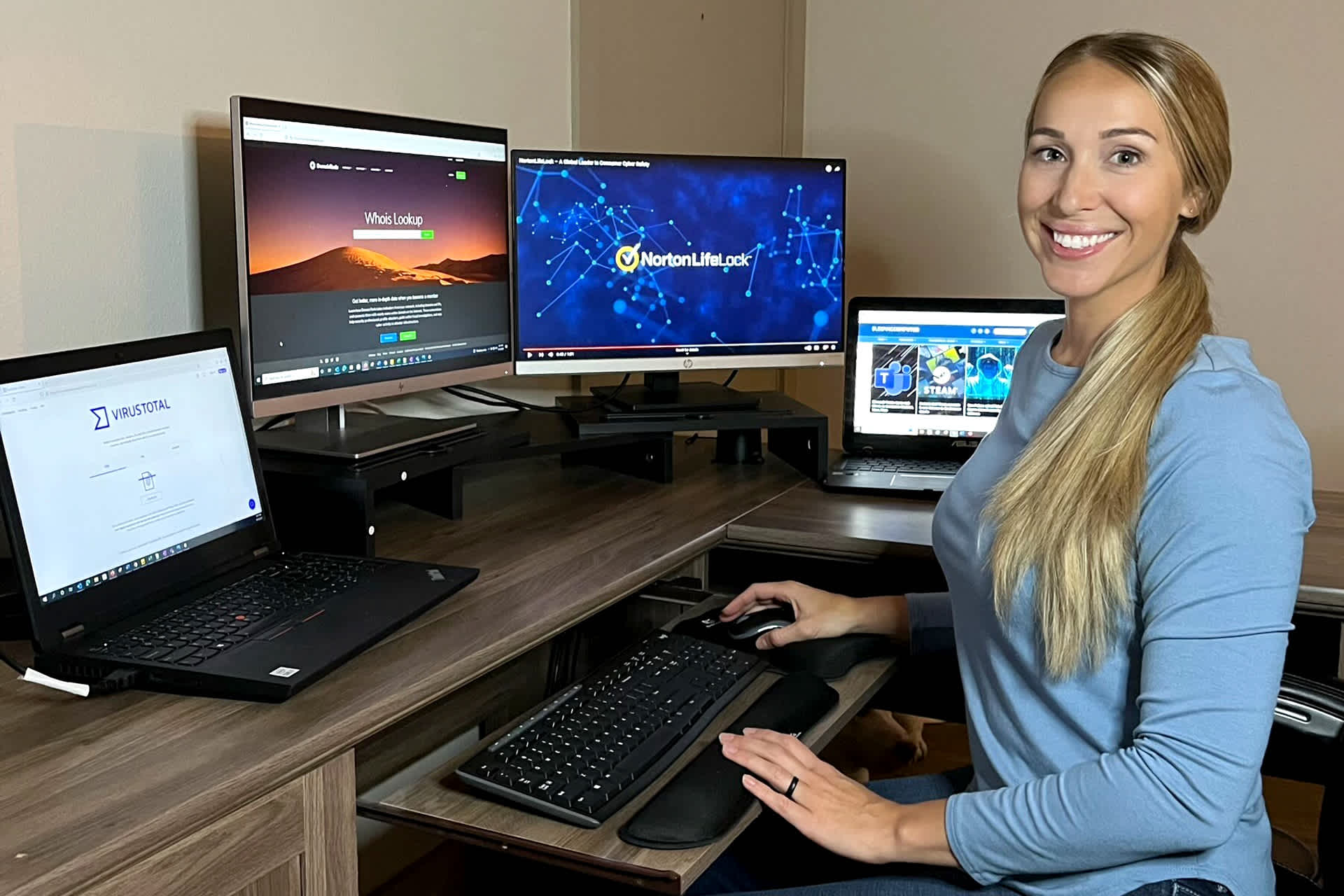Security Check

From passwords and credit-card numbers to names, addresses, and birthdays, a lot of personal information is floating around on the Internet. And sadly, there are people who use software to steal that information. So companies hire professionals whose job it is to keep sensitive information from falling into the wrong hands.
That’s exactly what Kayley Kish does for a company called NortonLifeLock, where she works as a cyber threat intelligence analyst. NortonLifeLock offers software products that individuals can buy to protect their information online. Kish is part of the team that’s responsible for protecting the company and its employees.
Before working at NortonLifeLock, Kish was an active-duty military intelligence analyst with the U.S. Department of Defense. She had top-secret clearance. Kish spoke to Your Hot Job about her career.
“Researching and learning are done on a daily basis.”
Kish starts a typical work day by checking a variety of sources, including social-media platforms such as Twitter, for mention of cyber threats that could affect her company. If she sees something suspicious, she’ll dig deeper. Kish will learn as much as she can about the possible threat and what other cybersecurity experts are saying about it. That way, she and her team can determine whether they need to take action. Her team is also responsible for investigating suspicious emails and other cybersecurity concerns raised by company employees.
“I didn't understand a word they were saying. And so that’s what really caught my attention.”
Other cybersecurity professionals might break into the field through an internship or an entry-level job, but Kish’s path was a bit different: While serving in the U.S. Army, she was stationed at a military base and worked on projects with the cybersecurity team. She was intrigued by the conversations going on around her. She was so fascinated by that work that she eventually earned a bachelor of science degree in cybersecurity from American Military University, which helped her get a job with the Department of Defense.
“There’s more than one way to get the same answer.”
Cybersecurity analysts often have to look at multiple sources of information in order to evaluate how to respond to a potential threat. That’s why Kish says it’s important to develop critical-thinking skills, such as knowing what questions to ask and how to set priorities. Attention to detail is another important quality a cybersecurity analyst should have. “Even the smallest bit of information can make a big difference with your analysis,” she says.
“I enjoy problem-solving with my team because everyone has a very different perspective to bring.”
Kish emphasizes that cybersecurity is a team effort. Analysts work in teams, which collaborate with other teams within the company to suss out and address any cyber threats that may arise. If one person overlooks something, there’s a good chance someone else will catch it and save the day. Kish says, “Sometimes, just listening to my teammates explain their thought process can be eye-opening.”

